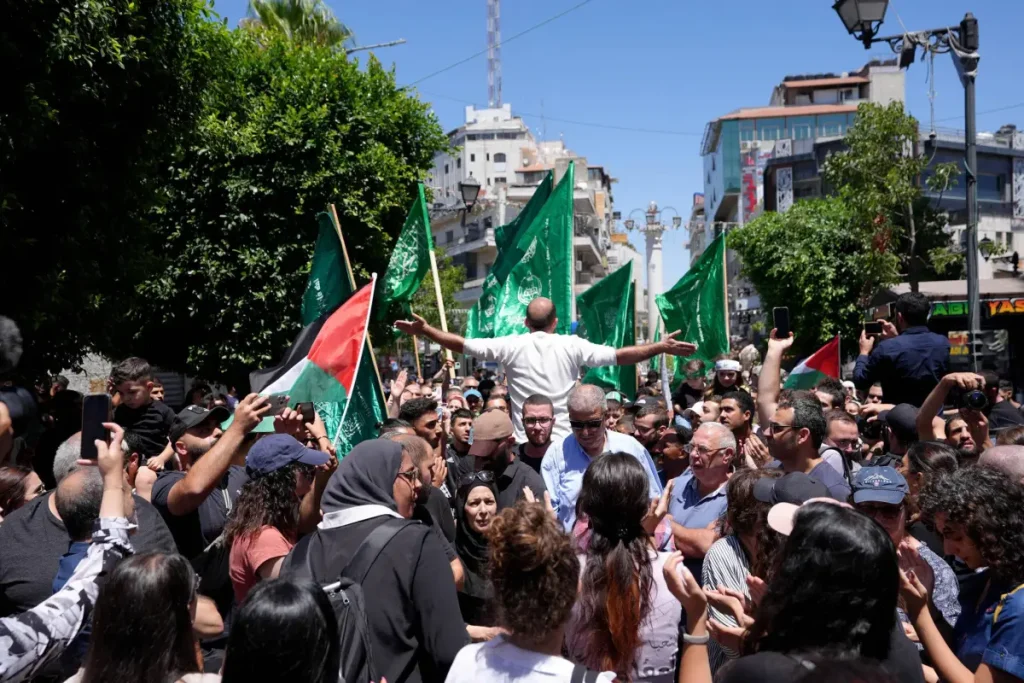In a dramatic and destabilizing development, Hamas political leader Ismail Haniyeh was assassinated in Iran, sending shockwaves through the already volatile Middle East. Haniyeh, a central figure in Hamas and a key player in Palestinian politics, was known for his influential role and strong connections with Iran. His assassination signifies a critical and dangerous escalation, with potentially far-reaching repercussions for regional stability and international relations.
The Assassination
Ismail Haniyeh was killed in Tehran under mysterious and highly coordinated circumstances. While the full details remain unclear, initial reports suggest a sophisticated operation. Haniyeh’s presence in Iran was part of ongoing efforts to strengthen Hamas’s ties with the Iranian government, a longstanding supporter of the Palestinian militant group. His death on Iranian soil underscores the perilous dynamics at play in the region.

Immediate Reactions
The assassination has provoked immediate and intense reactions from various quarters. Hamas has vehemently condemned the killing, vowing retaliation and accusing Israel of orchestrating the attack. Israeli officials have maintained their policy of ambiguity, neither confirming nor denying involvement. Meanwhile, the Iranian government has denounced the assassination as an act of terrorism, framing it as a deliberate attempt to destabilize the region.
Regional Implications
Haniyeh’s assassination is poised to have profound implications across the Middle East. As a pivotal leader within Hamas, his death could create a power vacuum, potentially leading to internal strife and jockeying for leadership within the organization. Furthermore, the incident is likely to exacerbate the already tense relations between Israel and Hamas, raising the specter of renewed violence and military confrontation.
Iran’s Position
Iran’s strategic position in the region faces heightened scrutiny following this incident. Tehran’s support for Hamas has been a cornerstone of its foreign policy, positioning itself as a staunch defender of Palestinian rights against Israeli aggression. The assassination of a high-profile ally on Iranian soil represents a significant blow to Iran’s influence and may prompt a reassessment of its security measures and alliances.
International Response
The international community has expressed grave concern over the potential for escalating violence. The United Nations has called for restraint from all parties, emphasizing the need for diplomatic solutions to address the underlying issues. Major world powers, including the United States and Russia, are closely monitoring the situation, aware of the broader geopolitical ramifications and the potential for wider conflict.
Potential for Escalation
The assassination of Haniyeh introduces a new and dangerous layer of complexity to the Middle East conflict. With Hamas pledging retaliation, there is a heightened risk of immediate and severe responses, which could draw neighboring countries into the fray. This incident could also serve as a catalyst for broader conflicts, involving other militant groups and state actors with vested interests in the region.
Historical Context
The Middle East has a long and fraught history of political assassinations, often serving as flashpoints for larger conflicts. Haniyeh’s death is reminiscent of past incidents where targeted killings have led to prolonged periods of violence and instability. The intricate web of alliances and rivalries in the region means that any significant event can have a cascading effect, influencing various conflict zones and political dynamics.
Moving Forward
The assassination of Ismail Haniyeh is a stark reminder of the fragility of peace in the Middle East. It underscores the urgent need for comprehensive and sustained efforts to address the root causes of conflict, including political grievances, territorial disputes, and humanitarian issues. As the situation unfolds, the international community must remain vigilant and proactive in seeking pathways to de-escalation and lasting peace.
Conclusion
The assassination of Hamas political leader Ismail Haniyeh in Iran marks a dangerous new phase in the Middle East conflict. The immediate and long-term implications of this incident are profound, with the potential to reshape regional dynamics and influence global geopolitics. As stakeholders navigate this precarious situation, the focus must remain on promoting stability, preventing further violence, and pursuing diplomatic solutions to one of the world’s most enduring conflicts.
Get More Political Updates: https://www.timelinetale.com/